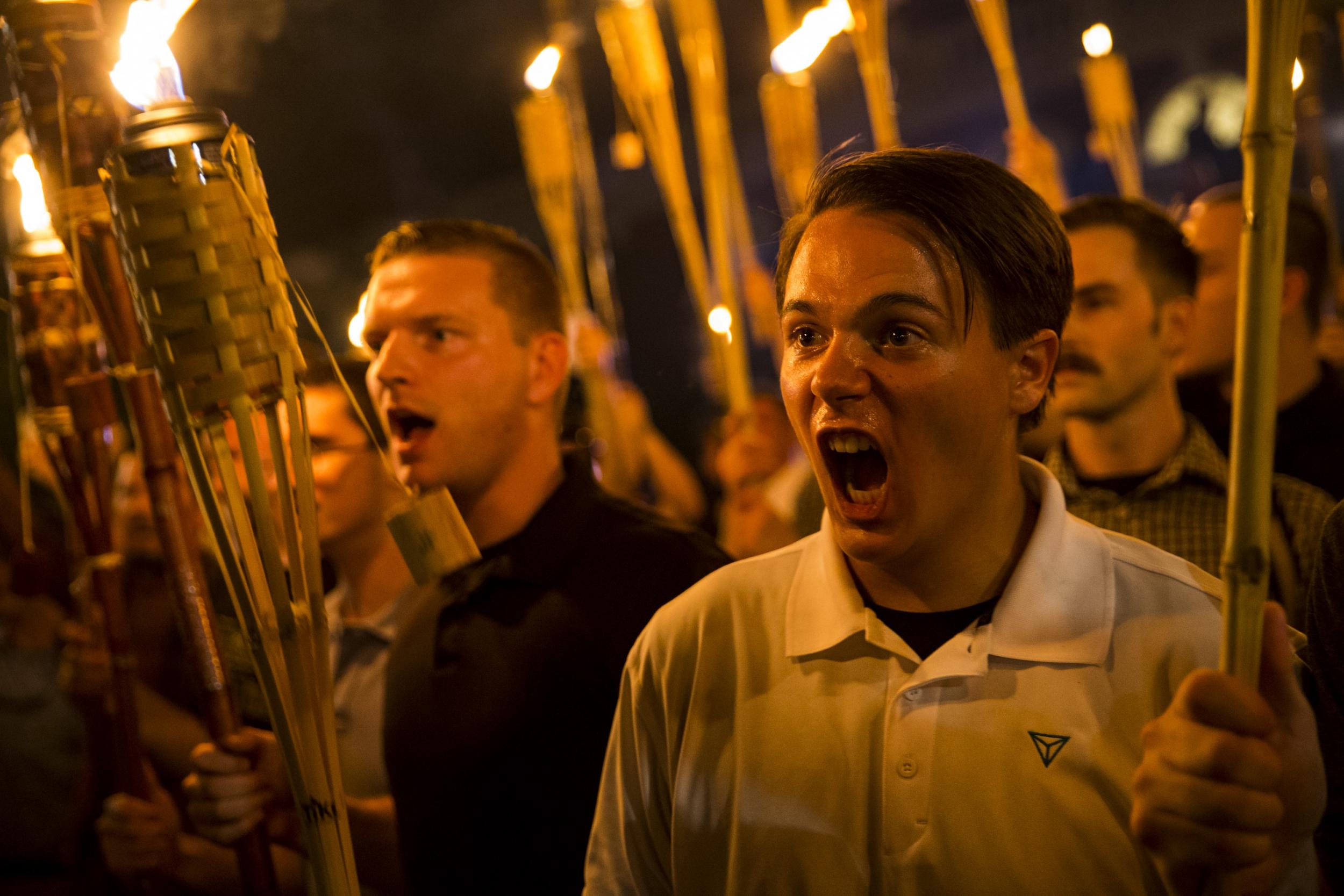Former neo-Nazi explains why you should never use the term 'alt right'
'The marketing face of this movement has always been such that it's been much more toned down and then, behind closed doors, the mission is the same,' says Christian Picciolini

Your support helps us to tell the story
From reproductive rights to climate change to Big Tech, The Independent is on the ground when the story is developing. Whether it's investigating the financials of Elon Musk's pro-Trump PAC or producing our latest documentary, 'The A Word', which shines a light on the American women fighting for reproductive rights, we know how important it is to parse out the facts from the messaging.
At such a critical moment in US history, we need reporters on the ground. Your donation allows us to keep sending journalists to speak to both sides of the story.
The Independent is trusted by Americans across the entire political spectrum. And unlike many other quality news outlets, we choose not to lock Americans out of our reporting and analysis with paywalls. We believe quality journalism should be available to everyone, paid for by those who can afford it.
Your support makes all the difference.Using the term “alt-right” helps white supremacists to legitimise their hatred, a former former neo-Nazi has warned.
Christian Picciolini, who was recruited by a skinhead group in Chicago when he was just 14, said right-wing groups are seeking mainstream legitimacy by claiming they are defending their cultural identity.
But he warned this was part of 30-year move to obscure their racist beliefs.
The award winning author and film producer said he had joined the Chicago Area Skin Heads in the late 1980s after being recruited by the group’s then leader Clark Martell.
The group is seen as one of the first large neo-Nazi groups to operate in America. It later merged with the Hammerskins Nation which civil rights advocacy group, the Southern Poverty Law Center, calls "the best organised, most widely dispersed and most dangerous Skinhead group known."
By 16 he was running the group, after the former leader was imprisoned for beating a female member who was seen with a black man.
But by 22 he had become disenfranchised and was looking for a way out.
He told Voices of America: “What I saw during those eight years was what I saw happen in Charlottesville. There were rallies with large numbers of protesters. We need to understand this is something that has been happening for a long time and we've been sweeping it under the rug.”
The 43-year-old, who left the group in 1996, said it was not necessarily hatred that draws people into these movements as they are instead looking for “an identity, community and a sense of purpose”.
He said that groups use similar methods to Isis and criminal gangs who “offer comfort to people who are the most marginalised, promise them paradise, and win their hearts and minds once they've delivered a bit of that”.
Mr Picciolini said he believes the death of Heather Heyer, who was killed when a car ploughed into protesters demonstrating against a white supremacist march in Charlottesville, Virginia, was a “pivotal moment for America”.
The suspected driver, James Fields, 20, has been charged with murder.
Mr Picciolini said it made people realise “that this is something that is very deeply seated in our fabric and is something that we need to tackle head on”.
These groups are careful to project a more reasonable, positive image of their movement and what they believe to the outside world and the media to disguise their true aims, he said.
“The marketing face of this movement has always been such that it's been much more toned down and then, behind closed doors, the mission is the same and that is, essentially, to create a white homeland at the expense of anybody else”, he added.
He said they try to spin white supremacy into a “movement of love” rather than hate and “what they'll tell the public and when in front of cameras [is] that they don't hate anybody, that this is something they're just doing because they're protecting something that they love, which is white identity, that there is nothing wrong with being proud of being white, which of course is true”.
But “behind closed doors” is another story, he said.
“That pro-white talk turns into anti-everybody else, even so far as talk of eliminating people based on their skin colour or their religion and talk of claiming the United States as a white homeland even through violent means”, he added.
Join our commenting forum
Join thought-provoking conversations, follow other Independent readers and see their replies
Comments